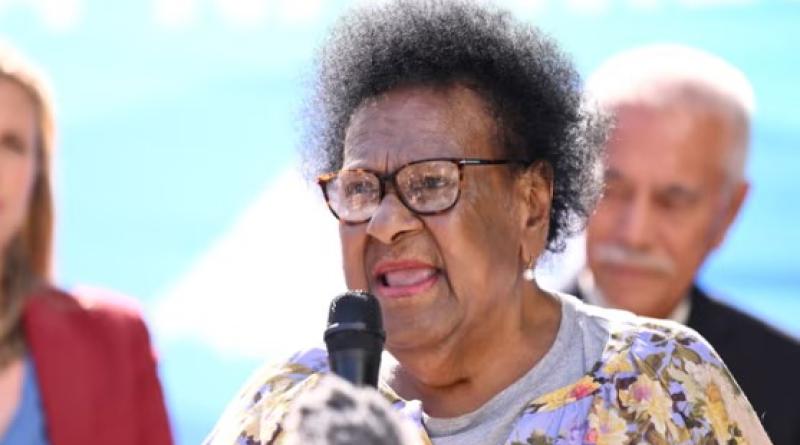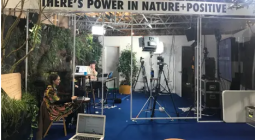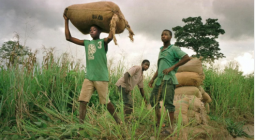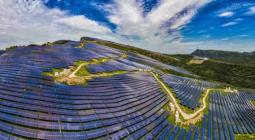‘It’s not viable any more’: global heating sparks first climate class action by Indigenous Australians

On Saibai Island in the Torres Strait, homes are already being inundated by king tides, the cemetery has been affected by erosion and sea walls have been built
“We cannot garden any more. They have to go far away to get the seafood,” says Aunty McRose Elu of life on Saibai Island in the Torres Strait. All of the effects [of climate change] on the islands changes the life of our people.
“They live in fear but also curiosity about what will happen because they can see the shorelines are all eroded.”
Aunty McRose is a senior elder from Saibai and a member of the first class action on climate harms brought by Indigenous Australians.
She was present in the federal court in Melbourne this week as hearings resumed in the landmark Australian climate case, which is alleging the federal government has failed to protect Torres Strait Islanders on the frontline of climate change.
The case argues the government has failed to prevent future harms that will arise from climate change or deal with harms that have already happened in the Torres Strait as a result of global heating.
The legal challenge is modelled on the Urgenda climate case against the Dutch government, in which the Urgenda Foundation and 886 people took the Dutch government to court for not doing enough to prevent climate change.
That case was the first in the world in which citizens established their government had a legal duty to prevent dangerous climate change and resulted in the court ordering the Dutch government to take immediate steps to cut greenhouse gas emissions.
The lead plaintiffs in the Australian case, Torres Strait community leaders Uncle Pabai Pabai and Uncle Paul Kabai from the islands of Boigu and Saibai, are seeking orders that require the Australian government to take steps to prevent climate harm to their communities, including by cutting greenhouse gas emissions in line with climate science.
Australia has a target of net zero emissions by 2050 but experts say that will not be enough to prevent disaster in the Torres Strait.
Uncle Pabai, Uncle Paul and their communities are represented by law firm Phi Finney McDonald and their case is supported by the Urgenda Foundation and Grata Fund, a public interest organisation that helps individuals access the courts.
The scientific case
The court hearings before Justice Michael Wigney in Melbourne will continue for at least another week and are taking evidence from some of Australia’s most esteemed scientists.
On Wednesday and Thursday the court heard expert evidence from Prof David Karoly, a world leader in atmospheric climate science, and from globally renowned marine biology expert Prof Terry Hughes.
Karoly told the court that global human-induced climate change was the greatest threat to the health of the Torres Strait Islands’ natural values.
Hughes detailed current and projected impacts of climate change on marine species and ecosystems, such as documented diebacks of seagrass in the Torres Strait, which affects dugongs that rely on seagrass for food.
During cross-examination, the government’s legal team highlighted single sentences from expert reports and asked the scientists to explain the basis for each view.
Isabelle Reinecke, the executive director of Grata Fund, says this was a change in approach from previous climate cases, such as the Sharma case, in which “the government had more readily accepted the very well established climate science”.
“My takeaway is they perceive risk from this case and cases like it so they are doing everything they can to avoid the risk of these kinds of cases,” she says.
“Their approach has changed and that really is reflective of how seriously the government is starting to take these cases.”
Reinecke says the hearings are “a crucial next step in the most significant climate case to date that seeks to hold the Australian government accountable for the impact of its failures on climate change”.
Earlier hearings were held on country in the Torres Strait in June to allow the court to tour the islands and view the existing impacts of climate change.
On Saibai Island, homes are already being inundated by king tides, the cemetery has been affected by erosion and sea walls have been built.
When Aunty McRose talks about people being unable to garden, what she means is those garden patches have absorbed saltwater.
“We can’t keep vegetables down, it’s not viable any more, we can’t do those kinds of things any more,” she says.
A spokesperson for the climate change and energy minister, Chris Bowen, says it would be inappropriate to comment on the legal proceedings while they were before the court.
They say after a decade of inaction by the previous Coalition government, “we are implementing strong policies to cut pollution, including legislating reductions of over 200m tonnes from our largest industrial emitters by 2030”.
“At the ministerial Torres Strait round table on climate change in June 2022, we heard from traditional owners that climate change is one of the greatest threats to the Torres Strait’s people.”
Before Wednesday’s hearing in Melbourne, Uncle Paul asked:“Where will we go if our islands are underwater?
“We are here in court in Melbourne because we have a responsibility to protect our homelands, our communities and our culture from climate change for the future generations to come.
“We want the government to face the truth about what will happen if they don’t listen to us and to the science.”
Photograph: Morgan Hancock/AAP - Aunty McRose Elu at the federal court of Australia in Melbourne. She is a member of the first class action on climate harms brought by Indigenous Australians






